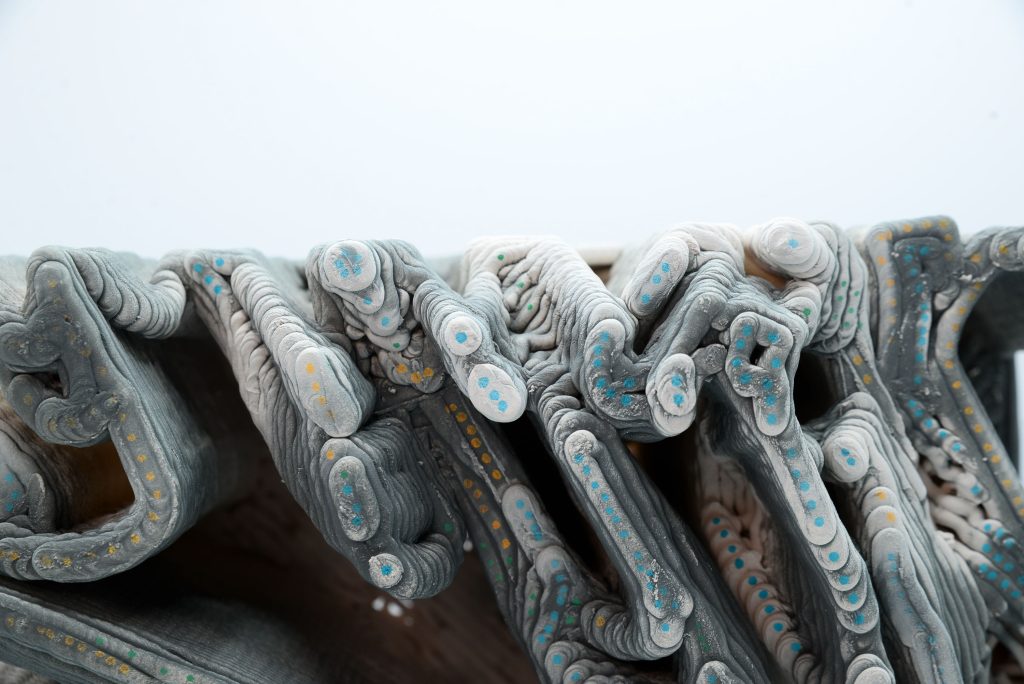
SE Weathering Surrogates
Course No.: 848181
Teaching: Andreas Körner
In this technical seminar, students will explore the relationships between digital environmental simulations, digital fabrication, material properties, and weathering as a design factor. The focus lies on the interplay between colour, shape, and thermodynamic parameters. The course aims to develop and apply advanced digital design and fabrication methods that link, program, synchronise, and orchestrate those relationships. The results will be interactive prototypes that act as interfaces between the built and the natural environment and … more











